Iran’s Nuclear Chief Reiterates Technical Issues In Vienna Talks Are Finalized
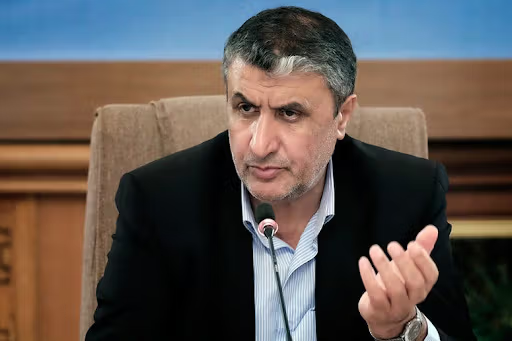
Iran’s nuclear chief says technical issues in the Vienna talks have been finalized and the remaining issues are political and related to the foreign ministry.

Iran’s nuclear chief says technical issues in the Vienna talks have been finalized and the remaining issues are political and related to the foreign ministry.
Head of the Atomic Energy Organization of Iran (AEOI) Mohammad Eslami said on Wednesday that the International Atomic Energy Agency (IAEA) raised some concerns about the country’s nuclear program in reports published during the past four years, but all such issues are resolved now.
He claimed that those reports were mostly based on allegations by Israel and some opposition groups against the Islamic Republic.
Eslami said that Iran and the IAEA handled their relations in accordance with Safeguard Agreement regulations and will continue their routine interactions.
Earlier in April, Eslami said Iran had sent documents related to outstanding issues to the UN nuclear watchdog.
He added that the nuclear sites and centers that were damaged in recent years, including Arak heavy water reactor, have been overhauled and are now operating as usual in accordance with the Strategic Action Plan for the Lifting of Sanctions, which was passed by the parliament in late 2020.
Eslami’s claims have not been independently verified. The IAEA also has not confirmed that outstanding issues with Iran have been resolved.
Eleven months of indirect talks between Iran and the United States to restore its 2015 nuclear agreement, (JCPOA), have stalled as Iran has demanded the removal the Revolutionary Guard (IRGC) from the US list of Foreign Terrorist Organizations.
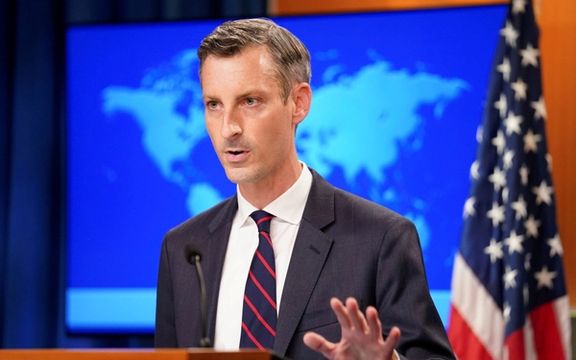
Washington signaled on Monday that it is not willing to remove terrorism-related sanctions demanded by Iran as a pre-condition to reach a new nuclear deal.
At his press briefing Monday, the US State Department Spokesman Ned Price reiterated that the administration of President Joe Biden did not want to "negotiate in public" but also said that Tehran needs to address the concerns of Washington if it wants sanctions-lifting that goes beyond the 2015 nuclear deal, the Joint Comprehensive Plan of Action (JCPOA).
"If they want to negotiate issues that fall outside the purview of the JCPOA, then we’ll do that, but they will need to negotiate those issues in good faith with reciprocity," Price said.
Apparently the two most important demands, unrelated to the JCPOA, that Iran has put on the table, and wants to be met as "signs of goodwill" before a deal is signed, are removing the Revolutionary Guard (IRGC) from a US terror list and the release of Iranian funds frozen under US sanctions in other countries, such as South Korea and Iraq.
The IRGC, however, was sanctioned in 2019 by the Trump administration as a Foreign Terrorist Organization, and Washington has signaled that if Tehran wants to have this and related sanctions removed, it should provide guarantees that its regional behavior will change.
Moreover, Iranian officials have also threatened revenge against former US officials for the targeted killing of IRGC Qods (Quds) Force commander Qasem Soleimani in 2020, a factor that has made it more difficult to discuss the removal of IRGC terrorist designation.
The Iranian foreign ministry spokesman Saeed Khatibzadeh on Monday indicated that Tehran was not going to offer any guarantees not to take revenge on American officials. "Bringing these individuals to justice is a fundamental principle in Iran's foreign policy," he said in his weekly press briefing.
Price on Monday called the Islamic Republic the "world’s leading state sponsor of terrorism". "We will use every appropriate tool to confront the IRGC’s destabilizing role in the region including working closely with our partners in Israel," he said. This was perhaps a signal that the Biden administration does not intend to remove IRGC sanctions.
Another thorny issue has been Tehran’s insistence to have its frozen funds in third countries released, something that could be linked with freedom for several US citizens held in Iran on trumped-up political charges.
Tehran’s foreign ministry spokesman said Monday that arrangements over repatriating Iran’s funds were “none of Washington’s business." Iranian officials have claimed in recent days that they will repatriate the funds independently of the nuclear talks, but they did not explain how if US banking sanction are not lifted.
Washington wants the releasee of its citizens currently detained in Iran as a sign of goodwill from Tehran. Beyond the nuclear deal itself, Price said Monday, Washington is focused on the release of its citizens.
Tehran has always insisted that the issue of detained foreign nationals and dual citizens is independent from the nuclear talks but is prepared to release the detainees "on humanitarian grounds".
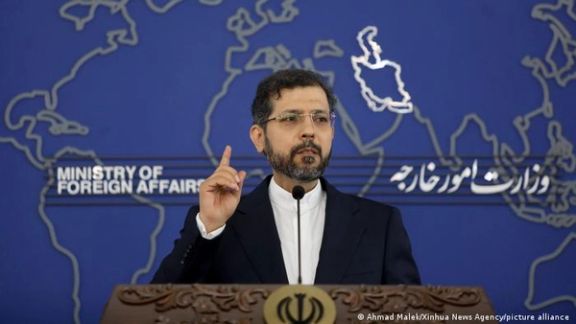
Iran said Monday "agreements" during a recent diplomatic visit over releasing blocked Iranian funds by a third country "is not up to Washington to decide."
Commenting on US State Department Spokesman Ned Price’s recent remarks over Iranian frozen funds at his weekly press briefing Monday, foreign ministry spokesman Saeed Khatibzadeh said a "delegation" had visited Tehran last week during which "certain agreements" were made. "This neither has anything to do with the US, nor we would allow the US to interfere in its details," he said defiantly.
Price said Thursday that all reports about Washington having agreed with the release of Iranian funds frozen by third countries were false.
The Iranian foreign ministry spokesman also indicated that Tehran was not going to offer any guarantees not to take revenge on American officials responsible for the Killing of the Revolutionary Guards (IRGC) commander, Ghasem Soleimani, in Baghdad on January 3, 2020, in return for Washington's delisting of the IRGC. "Bringing these individuals to justice is a fundamental principle in Iran's foreign policy," he said.
Negotiations in Vienna over reviving the 2015 nuclear agreement known as JCPOA came to a halt last month over a reported Iranian demand to remove its Revolutionary Guard from the US foreign terrorist designation. Media reports have mentioned that a US counter proposal asked Iran to renounce threats it made against former American officials for Soleimani’s killing.
Iranian officials and media said recently that Iran is set to recover $7 billion of its frozen assets "soon" independent of any outcome to the Vienna nuclear talks.
Khatibzadeh also categorically denied any relationship between unfreezing Iran's frozen assets and a possible Iran-US prisoner swap. "We separate humanitarian issues from debts," he claimed.
Iran has not revealed any details about the alleged diplomatic visit to free the blocked funds.
Iran’s Foreign Minister Hossein Amir-Abdollahian, however, on April 13 said that a foreign visit did take place the previous day and an agreement was made regarding Iranian money blocked in a "foreign bank". He made the announcement in a joint press conference with visiting Iraqi foreign minister Fuad Hussein, but his statement about the agreement did not refer to Baghdad.
Iraq is highly dependent on Iranian gas and electricity which it has continued to purchase thanks to Washington's regularly issued sanctions waivers. Baghdad, however, has not paid Iran for its energy imports due to US third-party sanctions that prohibit other countries to conduct financial transactions with Iran.
Payments for Iran’s gas and electricity imports by Iraq go to a special account in the state-owned Trade Bank of Iraq. Iran can only use the money for humanitarian commodities.
The amount of money frozen in Iraq banks was over $6 billion in September, and given that the amount has grown since then, it is quite possible that the $7 billion officials are promising to get released is money in Iraqi banks rather than South Korea which is also holding $7 billion of frozen Iranian assets.
Khatibzadeh on Monday also said that the 2015 nuclear deal has not been working for Iran for years. "Iran's economic benefits have been neglected for years. We are a responsible country, and we adhere to a commitment once we sign it," he said, adding that Tehran has its Plan B and C, regardless of the Vienna talks.
"Sanctions removal is a key issue in ministry of foreign affairs, but neutralizing sanctions has always been on the agenda too. Iran is continuing to neutralize sanctions according to its B and C plans," he said.
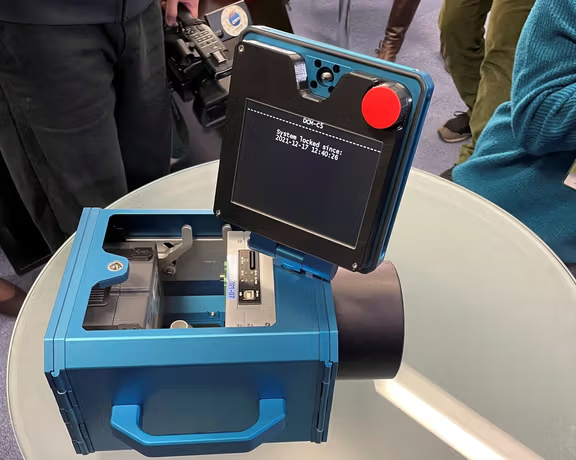
The Atomic Energy Organization of Iran (AEOI) reiterated Saturday that it would not hand camera footage from nuclear sites to the International Atomic Energy Agency if a new nuclear deal is not reached with world powers.
AEIO spokesman Behrouz Kamalvandi said in an interview with Iran's al-Alam television channel Saturday the camera footage might be deleted.
Since Iran last year reduced access of the IAEA to that required under the Nuclear Non-Proliferation treaty, a temporary arrangement has been in place allowing the agency to maintain surveillance equipment at nuclear sites while no longer having instant access.
Kamalvandi reiterated that the AEOI had transferred manufacturing equipment from a complex at Karaj, west of Tehran, to Natanz and Esfahan. He said this followed an act of sabotage, a reference to an attack in June 2021 widely attributed to Israel: “We had to tighten security measures.”
The IAEA announced earlier in the week that a new workshop at Natanz would begin making parts for centrifuges, which enrich uranium. Iran began expanding its nuclear program in 2019 − the year after the United States left the 2015 nuclear deal − beyond the limits set by the deal, in levels of enrichment, in stockpiles of enriched uranium, and in the use of more advanced centrifuges, the machines used for enriching uranium.
Year-long Vienna talks with world powers, following the commitment of the Biden administration to revive the 2015 agreement, the JCPOA (Joint Comprehensive Plan of Action), are stalled.
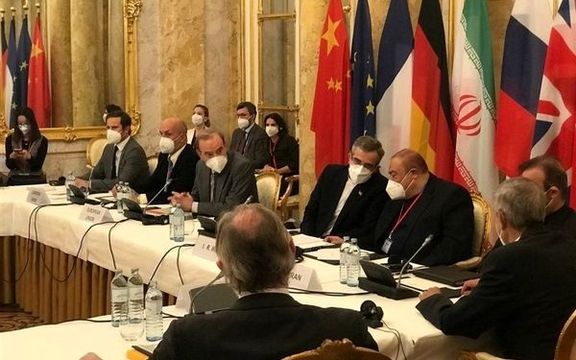
A lawmaker in Tehran says Iranian nuclear negotiators had the go-ahead to start direct talks with American diplomats, but some politicians prevented the move.
The statement by Gholamreza Nouri, a conservative parliament (Majles) member means that Supreme Leader Ali Khamenei had issued the authorization to hold direct talks with the United States in Vienna, but others, most likely ultraconservative Paydari party elements such as former nuclear negotiator Saeed Jalili who are believed to have Iran’s current chief negotiator Ali Bagheri under their influence prevented the move.
Nouri characterized those elements as "a few loud individuals" who have used their influence to derail the negotiations.
The statement was made on the same day that a hardliner political figure close to Paydari, who accompanies Iranian negotiators, Mohammad Marandi, accused US President Joe Biden of not being courageous enough to make a deal and being pressured by Congress not to give any concessions to Iran.
Despite promises made by President Ebrahim Raisi during his election campaign, nine months after he took office, the negotiations have remained inconclusive for various reasons including Russia’s shifting position after the invasion of Ukraine.
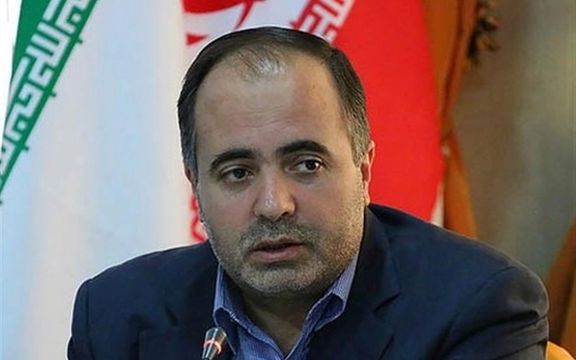
During a meeting with Iranian journalists on April 10, Raisi said his government follows the Supreme Leader's strategy about the nuclear talks," meaning that he does not have a plan of its own about furthering the negotiations.
Nouri expressed hope that the government would try to get results from the negotiations so that it can solve the country's economic problems by having US sanctions lifted. He reminded Raisi that during his election campaign he had promised to prevent the nuclear talks from becoming a "negotiation of attrition."
He also urged the government to start direct talks with the United States as the main party to the nuclear deal because others who are acting as mediators pursue their own interests rather than the interests of Tehran or Washington.
On the opposite end of the political spectrum, in an interview with Didban Iran website, another lawmaker, Ali Asghar Annabestani charged that Iranian negotiators in Vienna have violated the red lines defined by Supreme Leader Ali Khamenei.
Annabestani, who is close to Paydari Party, said: "We told Raisi to seek guarantees from Americans and verify the US side's fulfilment of its commitments before signing any agreement. But based on evidence at the disposal of the parliament, he has already accepted matters that are not in the country's interests."
"In a letter we sent to Raisi, we called on him to pay attention to the Supreme Leader's directives before it is too late," Anabestani said, referring to a letter signed by more than 250 lawmakers earlier this week.
However, Annabestani insisted that the parliament needs guarantees from the United States: "What if after we sign an agreement, the United States refuses to lift the sanctions and release Iran's frozen assets?" He said, adding that Washington should give guarantees that would be acceptable for Iran.
The hardliner lawmaker added that because of the war in Ukraine, the United States needs an agreement more than Iran. So, the negotiators should patiently continue the talks and refuse to sign anything before they get the necessary guarantees from the United States.
Both these lawmakers are in the same “priniciplist” political camp as Raisi. This means that opposition to the government policies and performance are on the rise even among the president's political allies.
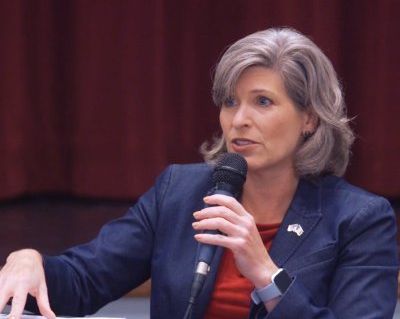
Republican Senator Joni Ernst says now is the wrong time to be negotiating a new Iran deal as Russia continues its lawless invasion of Ukraine and US adversaries are emboldened.
The Iowa senator made the comment in a twitter post on Thursday and shared a letter by a group of 46 US retired generals and admirals urging President Joe Biden and Congress to reject the new nuclear deal currently being negotiated with Iran.
In an open letter published on Wednesday, they said this “dangerous” agreement is “poised to instantly fuel explosive Iranian aggression and pave Iran’s path to become a nuclear power, threatening the American homeland and the very existence of America’s regional allies.”
Also on Thursday, Congressman Josh Gottheimer called on the administration not to make concessions to Iran to revive the nuclear deal, noting, “We must not cave to demands from Iran — the world’s leading state-sponsor of terror. It's time to stand strong against terrorists and protect American values and our allies.”
The New Jersey representative also warned against removing Iran’s Revolutionary Guard from the US list of foreign terrorist organizations and depending on Russia to handle the nuclear negotiations.
“We cannot lift the FTO designation from the IRGC, remove non-nuclear sanctions on Iran, or let Russia hijack the negotiations”, he tweeted.
Reports said on Thursday that conservative group America First Legal Foundation has notified the White House that it "intends to take legal action to block any Biden-Iran deal that is not submitted to Congress" for approval.